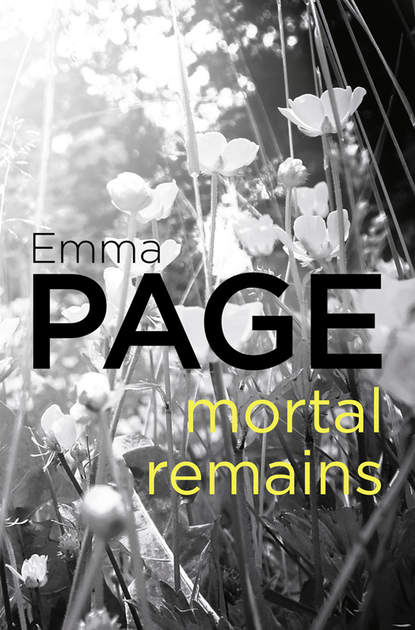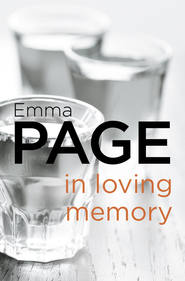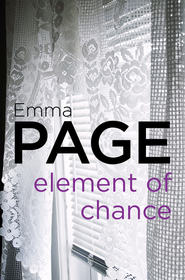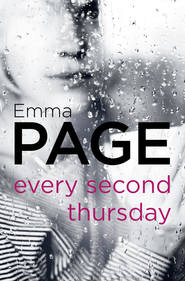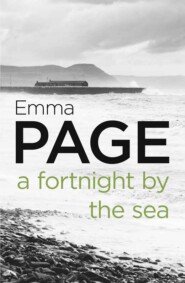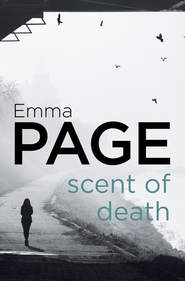По всем вопросам обращайтесь на: info@litportal.ru
(©) 2003-2024.
✖
Mortal Remains
Автор
Год написания книги
2018
Настройки чтения
Размер шрифта
Высота строк
Поля
When the list was as complete as they could make it, Jill looked up at the Chief, her eyes bright with tears. ‘Is that what Granddad’s life was valued at?’ she demanded fiercely. ‘Is that what some thug thought it worth killing him for?’
CHAPTER 5 (#ulink_38a071e8-2f64-59cc-aedb-6cf9bef241a7)
The Chief was at the police station early on Monday morning to assess the first results of the house-to-house inquiries before going along to the General Hospital where the postmortem on Harry Lingard was shortly due to begin.
As always with a case of this nature there was no shortage of reports, once the news of the crime had been made public, of unsavoury-looking characters having recently been seen in the area. Vehicles, too; the public could always be relied on to recall strange vehicles parked in out-of-the-way spots, appearing abruptly, vanishing equally suddenly. None of these reports struck the Chief’s practised eye as having any real significance, though all must be scrupulously followed up, however much valuable time and effort was wasted in the process.
One report did briefly arrest the Chief’s attention, that of a householder, a young single mother living in a street off Whitethorn Road. She had got up during Friday night to attend to her crying infant. After she put the baby back in its cot she went down to the kitchen to make herself a hot drink. On her way downstairs she heard screeching sounds from the direction of the common, sufficiently loud and sudden to halt her on the stairs. She stood listening for a minute or so but there were no more screeches. Some freak of the wind, she told herself; it was certainly blowing strongly at the time, with fierce intermittent gusts. Or a fox, perhaps; they were not unknown at night around the common, they were capable of the most eerie, heart-stopping cries. She was able to give the time she had heard the sounds. When she entered the kitchen she had glanced up at the clock, a reliable timekeeper; it had shown twenty minutes past two.
It was when his eye fell upon this statement of the time that the Chief lost interest in the report. However variable the way in which Harry set about his round from one week to the next, it was scarcely conceivable that he could have been crossing the common at twenty past two in the morning. No other householder, the Chief noted, had reported hearing these screeching cries – but then, maybe, none of them had a two-month-old baby to get them out of bed at that time of night.
So far they hadn’t come up with anyone who had actually spotted Harry putting a copy of the Bazaar through a letterbox that evening, nor had they discovered any householder on Harry’s round who could tell them at what precise moment his own copy had dropped on to the mat.
The search of the common was not yet completed. It had yielded a variety of items; none appeared to have any connection with the murder. Nothing approximating to the blunt instrument they were seeking had so far turned up.
In one of the drawers of Harry’s bureau, which had now been opened by a locksmith, they had found Harry’s chequebook and bank card but they had come across nothing that seemed to offer any clue to the crime.
Shortly after eleven the pathologist came out of the mortuary with Chief Inspector Kelsey; they stood talking in the corridor.
Harry Lingard had been in exceptionally good physical condition for his age, he could well have been expected to live an active life into his late eighties.
Four savage blows had been dealt to the back of his head. The blows appeared to have been struck by a right-handed person, with both assailant and victim in an upright position; whether one or both were in motion at the time it was not possible to say. There had been little bleeding; the second blow had in all probability killed him. The assault had not required exceptional strength; it was not, for instance, beyond the power of a fit, strong female.
It wasn’t possible to be more specific about the kind of blunt instrument used; some kind of heavy tool seemed most likely. Nor was it possible to fix the time of death with any certainty; the pathologist put it on Friday evening, between seven and midnight.
Gareth Lingard was not in a position to spend more time away from his business than was absolutely essential. He drove over to Cannonbridge in his lunch-hour to look in at the police station, learn the results of the post-mortem.
In the afternoon the Chief called in at Mansell’s yard. Mansell was expecting them; Sergeant Lambert had phoned in the morning to make an appointment. The moment the police car drove in Mansell came out of the office with Stuart at his side. The Chief had some slight acquaintance with Mansell but he had never met Stuart. His father all over again, the Chief thought as the pair crossed the yard towards him.
‘An appalling business,’ Mansell said as they shook hands; he took them into the inner office. The Chief asked routine questions about the dead man and Mansell answered readily. Lingard had been an excellent worker, willing and obliging, unfailingly punctual, very honest. He had been well liked, had never been in any kind of trouble. Mansell knew of no personal or other difficulties. He seemed to take it for granted that Lingard had been the victim of a mugging.
His manner throughout was helpful and friendly, but from time to time the Chief received a fleeting impression of wariness and tension. Stuart was at no point called upon to speak nor did he volunteer any observation; he held himself alertly interested throughout.
The conversation didn’t take long. As they were about to leave, Lester Holroyd drove into the yard; he walked across to the office, encountering the policemen in the doorway. There was a further brief exchange but Lester could add nothing to what Mansell had told them.
Later in the day the local evening paper came out with a four-page spread on the crime. Photographs of police activities, interviews with residents of the council estate, recounting Harry’s many endeavours on their behalf. Tributes from fellow members of the British Legion.
Mention was made of the fact that it was Harry’s evidence which had been largely responsible on three separate occasions over the past few years for the arrest and sentencing of local youths on charges of vandalism and thefts from cars. What the paper didn’t mention was that Harry had reported yet another such case, lads breaking into cars, only a matter of weeks back; he would have been giving evidence when the case came up. The lads concerned were at present out on bail.
A sizeable section of local opinion laid the murder firmly at the door of some one or more of these tearaway youths, either bent on revenge or maybe disturbed in the course of committing some further misdemeanour. Possibly, such opinion had it, there had been no serious intention of actually killing the old man, the wish had more probably been merely to rough him up, teach him a lesson. Easy enough, in the event, for someone to strike too hard, astonishing himself – and any mates – by the violence of the aggression sweeping over him.
But more general opinion in the local pubs inclined towards a run-of-the-mill mugging that had got out of hand, the victim being selected for ease in carrying out the robbery, with total indifference as to who that victim might be, the perpetrators more than likely not from the locality at all.
It was on this last point that opinion most sharply divided, some firmly rejecting the possibility that local lads could be involved in such a brutal crime, others maintaining with equal vehemence that the choice of dumping-ground – a private garden with the owners absent – must surely argue a degree of local knowledge.
Both groups were united in believing more than one assailant must have been involved, probably with a vehicle of some sort nearby. How else account for the spiriting away of the satchel and freesheets? A lone attacker on foot, argued the know-alls, would scarcely set about lugging the body single-handed off the common and into the garden, and then attempt to make off under the street lights, weighed down with a heavy satchel, brilliantly coloured, specifically designed to be noticed.
Tuesday morning brought a conference and press briefing. At noon the Chief had an appointment with Harry Lingard’s solicitor.
Harry’s will was a straightforward document. After a number of bequests to charities he had actively supported, his estate was split down the middle between his two grandchildren. Apart from the house, Harry had owned stocks and shares, various other investments. ‘A lot of folk are going to be surprised at the amount he leaves,’ the solicitor said. ‘He saved all his life, he was a shrewd investor.’ Harry’s wife had been the only child of a shopkeeper, she had inherited a substantial sum in her middle years; no mortgage had been needed when Harry came to buy his council house.
Gareth had been appointed joint executor with the solicitor. Both grandchildren knew the contents of the will; Harry had talked it over with them before the will was drawn up. To the best of the solicitor’s knowledge Harry had always been on excellent terms with both grandchildren. As far as he knew, neither was in any financial difficulty.
The Chief pondered these points as he left the solicitor’s office. Jill had reached Gareth’s house around six-thirty on Friday evening. Anne was there with the children, Gareth came in from work shortly afterwards. They had spent the evening together in the house. Gareth’s partner and his wife had come in for an hour or two after supper, arriving at about eight and leaving around ten-thirty. By eleven everyone had retired for the night.
Before returning to the station Kelsey called in at the bank and building society where Harry had held accounts. Both accounts showed substantial balances; there had been no unusual movement recently in either.
The afternoon saw an energetic round-up of every youth in the area who might be thought to have harboured a grudge against Harry Lingard. Clubs, discos and similar meeting-places were visited during the evening. Interviews took place in the police station, in the offices of clubs, in lads’ homes, in the presence of parents where possible.
The effect of all this activity was to arouse a good deal of apprehension in a section of local society more usually remarkable for its carefree attitude to law and order. Petty crime might be an everyday staple but suspicion of murder was another kettle of fish altogether, one that had many of these characters quaking in their designer trainers.
Alibis for Friday evening were produced in the end for everyone – in some cases only after considerable red-faced shuffling about, understandable enough when it emerged that one pair had spent the evening rampaging over half the county in a succession of stolen cars; a second pair had improved the shining hours by nicking cigarettes and cash from a tobacconist’s in another town; a third had amused themselves by breaking into an isolated dwelling some miles from Cannonbridge while the owners were out for the evening.
The youths currently on bail, against whom Harry would have given evidence, had operated as a gang of six, all living in the same area of Cannonbridge, a district with an unsavoury reputation, where the mere sight of a police car drawing up was normally enough to afflict every resident with dumbness, deafness, blindness and acute loss of memory.
Today, however, these afflictions were a good deal less severe and widespread. The fathers of some of the gang, themselves with records of one sort and another, were usually happy to turn a blind eye to whatever their sons got up to, no more in their indulgent eyes than might be expected from any lad of spirit. But on this occasion more than one of these citizens offered to beat the truth out of their offspring, given ten minutes without interference from the law.
It wasn’t necessary to accept any of these obliging offers as the lads were able to account satisfactorily for the manner in which they had spent Friday evening. It appeared they had occupied themselves harmlessly for once. Two of the gang had taken part in a pub darts match at the other side of Cannonbridge, the rest had gone along to cheer them on. All six had remained in the pub till closing time and had then gone on with members of both teams to the nearby home of one of the captains where the team wives set about making coffee and sandwiches. There had been a party of sorts which broke up around one-thirty.
The inquest on Harold William Lingard took place at eleven on Wednesday morning. The proceedings were brief and formal, the inquest being adjourned with no date set for resumption; the body was released for burial. Few members of the public were present. Old hands knew initial proceedings were scarcely ever of much interest; it was resumed inquests that usually offered a better chance of eye-opening disclosures.
Among the few who did take their seats the Chief noticed a handsome, dark-haired young woman with a strong, passionate face. She came alone, sat alone, spoke to no one. She looked about with keen interest, listened intently, left the moment the proceedings ended. The Chief was certain he knew her face and after a minute or two it came to him that he had seen her once or twice with her father at functions in the town. She was Tom Mansell’s daughter, Diane Holroyd, married to Lester Holroyd, Mansell’s right-hand man.
When the Chief left the court house he found Gareth and Jill Lingard waiting for him at the foot of the steps. ‘Something I remembered when I woke up this morning,’ Gareth told him. Two or three years ago his grandfather had told him he kept a certain amount of ready cash in the house for his bits of dealing. ‘He showed me where he kept it,’ Gareth added. ‘In a secret drawer of an old chest in his bedroom. He wanted me to know in case anything happened to him.’ Gareth couldn’t remember if Harry had mentioned a specific figure but his impression was that the sum might have been a few hundred pounds. ‘I’ve no idea if he still kept money there,’ he said, ‘or how much it might be now. He never mentioned it again.’
‘We’ll get along there and take a look in the chest,’ the Chief decided. Over his radio he arranged for a fingerprint officer to meet them at the house.
The kitchen window had now been repaired but this time they were able to make use of the backdoor key from the garden shed. The Chief had been right about the prints on the key and secateurs; such blurred traces as could be detected were too tiny to be of any use.
In Harry’s bedroom Gareth showed them a Victorian chest of drawers, highly polished; he had never touched the chest since the day his grandfather had told him about the money and shown him how to open the drawer. The fingerprint officer set to work but could come upon no trace of prints anywhere on the gleaming surface. Following Gareth’s instructions, he ran his fingers under a ledge above the top drawers, pressing at two points simultaneously to release the catch. The concealed drawer slid smoothly open.
Inside was a large old metal cashbox. And a money-belt made of canvas webbing. The cashbox was closed but not locked, although it was fitted with a lock holding a key; the metal surface showed a blur of fragmentary prints. The officer edged up the lid; the box was empty.
The money-belt had two webbing pockets furnished with large stud fasteners of some plastic material. Both pockets were open, both empty. The webbing offered no hope of prints but the studs showed blurred traces. The officer dealt with the prints on box, key and studs though there was little prospect of any useful result. Without being asked, Gareth volunteered in a matter-of-fact tone, ‘You’ll be needing fingerprints from Jill and me for elimination.’ The offer was accepted and acted upon without comment.
Jill had known nothing of the secret drawer nor had she touched the chest in recent times. Gareth had never previously set eyes on the money-belt but he had once heard his grandfather mention it. That would be a year or two ago, one day when Gareth had expressed concern that his grandfather might be robbed if he carried sizeable amounts of money on him in the course of his deals. His grandfather had told him he needn’t worry, he always wore a money-belt in such circumstances; he hadn’t produced the belt to show Gareth nor had he indicated where it was usually kept.
Jill told the Chief she had known of the existence of the belt; Gareth had mentioned it to her, though she had forgotten about it until just now when she saw it in the drawer.
Had either Gareth or Jill ever mentioned the secret drawer or the money-belt to anyone else? Gareth answered at once, very positively: he was certain he had never spoken of either to anyone else, not even to his wife.
Jill didn’t answer right away. When the Chief repeated his question she admitted, after further hesitation, that she had once mentioned the belt to Norman. There had been a case in the local paper a few months back, a youth convicted of handbag snatching. She had commented on the case to Norman, and it was then she had mentioned the money-belt.
Вы ознакомились с фрагментом книги.
Приобретайте полный текст книги у нашего партнера:
Приобретайте полный текст книги у нашего партнера:





